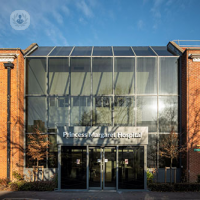What is interstitial cystitis?
Interstitial cystitis is a chronic inflammation of the bladder, also known as painful bladder syndrome. While interstitial cystitis describes chronic cases of bladder inflammation, cystitis is the term used for acute instances of the condition.
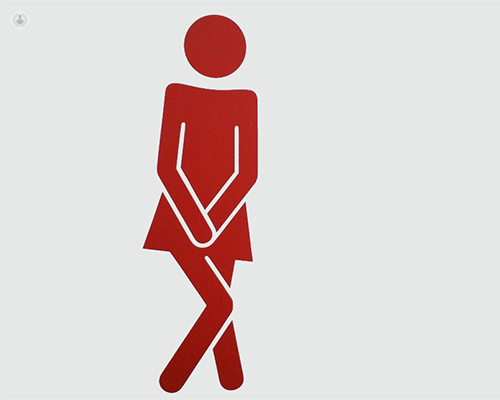
What are the symptoms of interstitial cystitis?
In patients suffering from cystitis, the bladder wall may be completely swollen which can cause pain and may even cause blood to be expelled in the urine. This can result from scarring or stiffness in the bladder which prevents it from enlarging when filled with urine. Therefore, the symptoms usually include a strong and frequent urges to urinate, increased urinary frequency, and pain during sexual intercourse.
What are the causes of interstitial cystitis?
The exact cause of recurrent cystitis is currently unknown, although it is understood that it does not result from bacterial or viral infections. Interstitial cystitis is much more common in women than men and is prevalent in those between the ages of twenty and thirty. Cystitis often develops after having sex or during the menopause.
Can interstitial cystitis be prevented?
The main way to prevent chronic cystitis is to try to avoid developing an acute case of cystitis. It is helpful to:
- Drink lots of water and fluids
- Urinate often
- Maintain good hygiene practices
- Shower rather than take baths
- Do not use aerosols or deodorants in the genital area
How is interstitial cystitis treated?
There is no permanent cure for interstitial cystitis, although the initial treatment of cystitis is usually a course of antibiotics. In interstitial cystitis, treatments are usually focused on improving the symptoms and implementing dietary changes, learning exercises to control the bladder, along with medication.
11-13-2012 05-30-2023Interstitial cystitis
Professor Francis Chinegwundoh MBE - Urology
Created on: 11-13-2012
Updated on: 05-30-2023
Edited by: Sophie Kennedy
What is interstitial cystitis?
Interstitial cystitis is a chronic inflammation of the bladder, also known as painful bladder syndrome. While interstitial cystitis describes chronic cases of bladder inflammation, cystitis is the term used for acute instances of the condition.

What are the symptoms of interstitial cystitis?
In patients suffering from cystitis, the bladder wall may be completely swollen which can cause pain and may even cause blood to be expelled in the urine. This can result from scarring or stiffness in the bladder which prevents it from enlarging when filled with urine. Therefore, the symptoms usually include a strong and frequent urges to urinate, increased urinary frequency, and pain during sexual intercourse.
What are the causes of interstitial cystitis?
The exact cause of recurrent cystitis is currently unknown, although it is understood that it does not result from bacterial or viral infections. Interstitial cystitis is much more common in women than men and is prevalent in those between the ages of twenty and thirty. Cystitis often develops after having sex or during the menopause.
Can interstitial cystitis be prevented?
The main way to prevent chronic cystitis is to try to avoid developing an acute case of cystitis. It is helpful to:
- Drink lots of water and fluids
- Urinate often
- Maintain good hygiene practices
- Shower rather than take baths
- Do not use aerosols or deodorants in the genital area
How is interstitial cystitis treated?
There is no permanent cure for interstitial cystitis, although the initial treatment of cystitis is usually a course of antibiotics. In interstitial cystitis, treatments are usually focused on improving the symptoms and implementing dietary changes, learning exercises to control the bladder, along with medication.
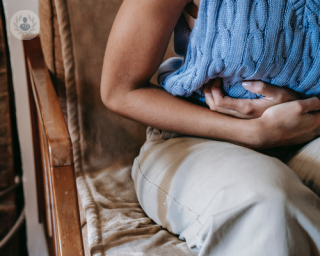

The benefits of cystoscopy and iAluRil installations for bladder pain
By Mr Michael Negus
2024-11-21
Bladder pain, often associated with conditions like interstitial cystitis or chronic cystitis, can significantly impact a patient's quality of life. Two commonly used procedures to diagnose and treat bladder pain are cystoscopy and iAluRil installations. These approaches not only help in identifying the underlying cause of the pain but also offer relief and manage symptoms effectively. Here to tell us all about them is leading consultant gynaecologist Mr Michael Negus. See more
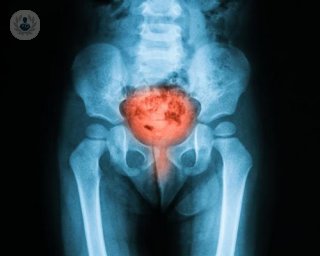

Bacterial and interstitial cystitis: causes, symptoms and treatment
By Mr Keng Jin Ng
2024-11-21
Leading consultant urological surgeon Mr Keng Jin Ng, discusses the causes and symptoms of both bacterial and interstitial cystitis and how to prevent recurring infection. See more


Interstitial cystitis: your guide to painful bladder syndrome
By Mr Mohammed Belal
2024-11-19
Bladder pain can strike for a number of reasons. One condition that may hit people in their 30s or 40s is interstitial cystitis, or painful bladder syndrome. We talked to expert urologist Mr Mohammed Belal, who gave us a quick guide to interstitial cystitis. See more
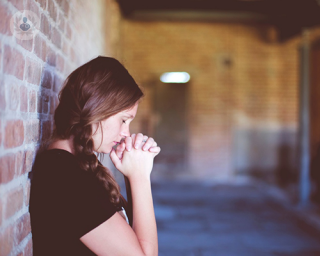

What causes chronic pelvic pain syndrome in women?
By Mr Parijat Bhattacharjee
2024-11-18
Chronic pelvic pain syndrome is debilitating pain that some women suffer from. It can be during the menstrual cycle, but not exclusively, and generally, it will last for more than six months. Mr Parijat Bhattacharjee, an expert gynaecologist, explains what causes chronic pelvic pain syndrome and how it may be managed. See more
Experts in Interstitial cystitis
-
Mr Sachin Malde
UrologyExpert in:
- Bladder cancer
- Cystitis
- Urinary incontinence
- Bladder problems
- Benign prostate enlargement
- Interstitial cystitis
-
Miss Jean McDonald
UrologyExpert in:
- Kidney stones
- Female urology
- Urinary tract infection
- Interstitial cystitis
- Haematuria (blood in the urine)
- Benign prostate enlargement
-
Ms Sameena Muzaffar
Obstetrics & gynaecologyExpert in:
- Interstitial cystitis
- Dyspareunia
- Vaginal prolapse
- Menstrual disorders
- Urinary tract infection
- Urinary incontinence
-
-
Mr Ali Omar
UrologyExpert in:
- Urinary incontinence
- Interstitial cystitis
- Urinary tract infection
- Bladder problems
- Urodynamic testing
- Cystocele
- See all

LycaHealth Canary Wharf
LycaHealth Canary Wharf
1 Westferry Circus, Canary Wharf. E14 4HD
No existe teléfono en el centro.
By using the telephone number provided by TOP DOCTORS, you automatically agree to let us use your phone number for statistical and commercial purposes. For further information, read our Privacy Policy
Top Doctors

The Parkside Suite Wexham
The Parkside Suite Wexham
Wexham Park Hospital, SL2 4HL, Berkshire
No existe teléfono en el centro.
By using the telephone number provided by TOP DOCTORS, you automatically agree to let us use your phone number for statistical and commercial purposes. For further information, read our Privacy Policy
Top Doctors

The Princess Margaret Hospital - part of Circle Health Group
The Princess Margaret Hospital - part of Circle Health Group
Osborne Rd, Windsor SL4 3SJ
No existe teléfono en el centro.
By using the telephone number provided by TOP DOCTORS, you automatically agree to let us use your phone number for statistical and commercial purposes. For further information, read our Privacy Policy
Top Doctors
-
LycaHealth Canary Wharf
1 Westferry Circus, Canary Wharf. E14 4HD, Central LondonExpert in:
- Cardiology
- Dermatology
- Diagnostic Imaging
- Women’s health
-
The Parkside Suite Wexham
Wexham Park Hospital, SL2 4HL, Berkshire, WexhamExpert in:
- Colorectal surgery
- General Surgery
- Breast augmentation
- Dermatology
- Obstetrics and Gynaecology
- Medical Oncology
-
The Princess Margaret Hospital - part of Circle Health Group
Osborne Rd, Windsor SL4 3SJ, WindsorExpert in:
- Brachytherapy
- Cardiology
- General Surgery
- Orthopaedic surgery
- Robotic Surgery
- Dermatology
- See all
- Most viewed diseases, medical tests, and treatments
- Menopause support
- Pelvic ultrasound
- Complex endometriosis
- Undescended testicle (Cryptorchidism)
- Maternal mental health
- Testicular ultrasound
- Nipple discharge
- Minimal access surgery (keyhole surgery)
- NanoKnife
- Vaginal dryness








